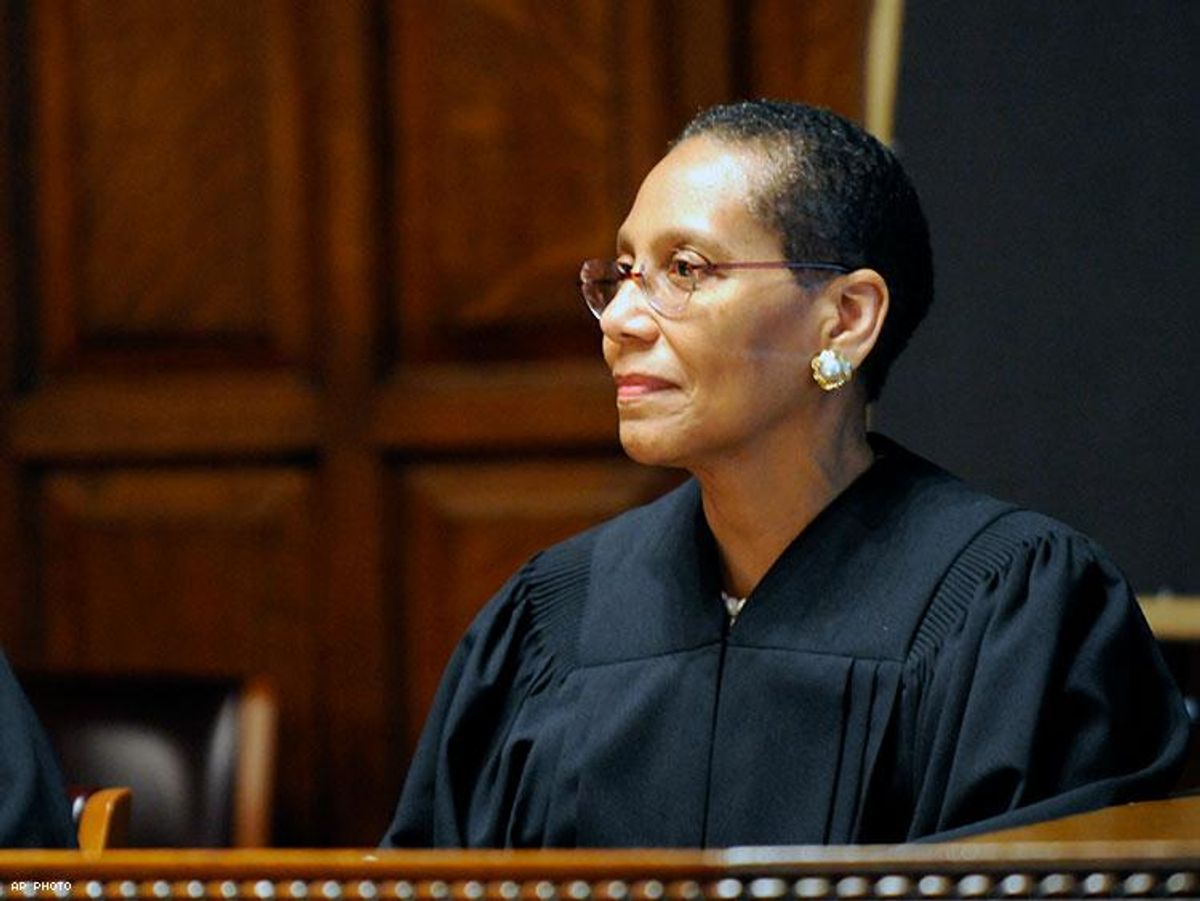New York State Court of Appeals Judge Sheila Abdus-Salaam, who was found dead in the Hudson River Wednesday, was a trailblazing jurist who last year wrote an important ruling expanding parental rights, affecting same-sex couples and others.
Abdus-Salaam was the first African-American woman to serve on the Court of Appeals, which is the state's highest court, and the first female Muslim judge in the U.S., The New York Times notes.
The judge, age 65, was found Wednesday afternoon in the Hudson in upper Manhattan, near her home in Harlem, and was pronounced dead by paramedics, the Times reports. There were no signs of injury to her body. Police are investigating, saying they suspect suicide rather than foul play, according to CNN. Her husband had reported her missing the previous day.
Last August, Abdus-Salaam wrote the Court of Appeals ruling expanding the definition of parent, in a case involving a same-sex couple. The court ruled that a person who is not biologically related to a child or legally tied to the child through adoption can still seek custody and visitation rights. The ruling, which brought New York into line with most other states, affects all types of families but is particularly important to same-sex couples.
"Where a partner shows by clear and convincing evidence that the parties agreed to conceive a child and to raise the child together, the nonbiological, nonadoptive partner has standing to seek visitation and custody," Abdus-Salaam wrote. The definition of parent in 1991 ruling in a case known as Alison D., which did not recognize the ties of same-sex couples, "has become unworkable when applied to increasingly varied familial relationships," she noted.
Abdus-Salaam was named to the Court of Appeals by Gov. Andrew Cuomo in 2013. Before that, she had served on the state Supreme Court (in New York, the Supreme Court is a lower body than the Court of Appeals). She previously worked as a lawyer in New York City's law department, im the civil rights division of the state attorney general's office, and as a public defender. When she joined the Supreme Court in 1994, she became the nation's first female Muslim judge.
On the Court of Appeals, she "was among the most reliable and steadfast liberal voices, regularly siding with vulnerable parties -- the poor, impoverished immigrants and people with mental illnesses, for instance -- against more powerful and established interests," the Times reports. "She also tended to lean toward injured parties who brought claims of misconduct, fraud or breach of contract against wealthy corporations." Despite this, "she was not one to use her decisions as a soapbox to make high-sounding political points or to wax poetic, even when her rulings were precedent-setting," the paper continues.
Cuomo issued a statement Wednesday saying Abdus-Salaam had an "unshakable moral compass," adding that she "was a trailblazing jurist whose life in public service was in pursuit of a more fair and more just New York for all."
She grew up in a poor family in Washington, D.C., and went on to earn a law degree from New York's Columbia University in 1977. One of her classmates at Columbia was Eric Holder, who became U.S. attorney general under President Obama.
"Sheila could boogie," Holder said at her Court of Appeals swearing-in ceremony in 2013, The Washington Post reports. "I read that during her confirmation process, Judge Abdus-Salaam received a standing ovation every time she appeared in public before members of the Legislature. Now, as someone who has appeared a number of times before Congress, I can tell you just how extraordinary that is."
Survivors include her husband, the Rev. Gregory Jacobs, an Episcopal minister in the Diocese of Newark, N.J., according to NBC News.


















































































